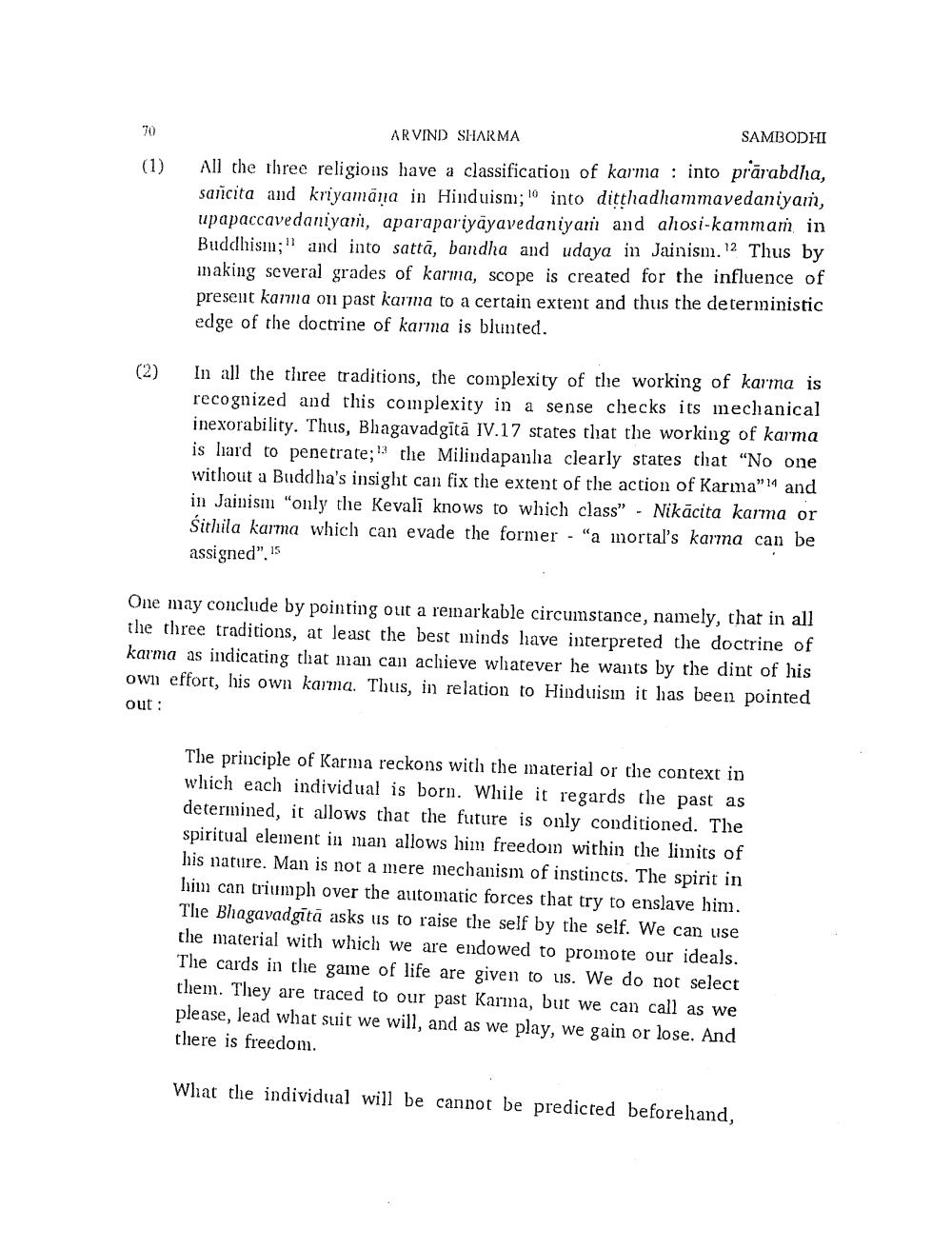________________
(1)
ARVIND SHARMA
SAMBODHI All the three religions have a classification of karma : into prārabdha, sancita and kriyamana in Hinduism; to into ditthadhammavedaniyam, upapaccavedaniyar, aparapariyayavedaniyan and ahosi-kammam in Buddhism;" and into sattā, bandha and udaya in Jainism.12 Thus by making several grades of karma, scope is created for the influence of present karma on past karma to a certain extent and thus the deterministic edge of the doctrine of karma is blunted.
In all the three traditions, the complexity of the working of karma is recognized and this complexity in a sense checks its mechanical inexorability. Thus, Bhagavadgitā IV.17 states that the working of karma is hard to penetrate;" the Milindapanha clearly states that "No one without a Buddha's insight can fix the extent of the action of Karma”?4 and in Jainism "only the Kevali knows to which class" - Nikācita karma or Śithila karma which can evade the former - "a mortal's karma can be assigned”. 15
One may conclude by pointing out a remarkable circumstance, namely, that in all the three traditions, at least the best minds have interpreted the doctrine of karma as indicating that man can achieve whatever he wants by the dint of his own effort, his own karma. Thus, in relation to Hinduism it has been pointed out :
The principle of Karma reckons with the material or the context in which each individual is born. While it regards the past as determined, it allows that the future is only conditioned. The spiritual element in man allows him freedom within the limits of his nature. Man is not a mere mechanism of instincts. The spirit in him can triumph over the automatic forces that try to enslave him. The Bhagavadgitā asks us to raise the self by the self. We can use the material with which we are endowed to promote our ideals. The cards in the game of life are given to us. We do not select them. They are traced to our past Karma, but we can call as we please, lead what suit we will, and as we play, we gain or lose. And there is freedom.
What the individual will be cannot be predicted beforehand,




